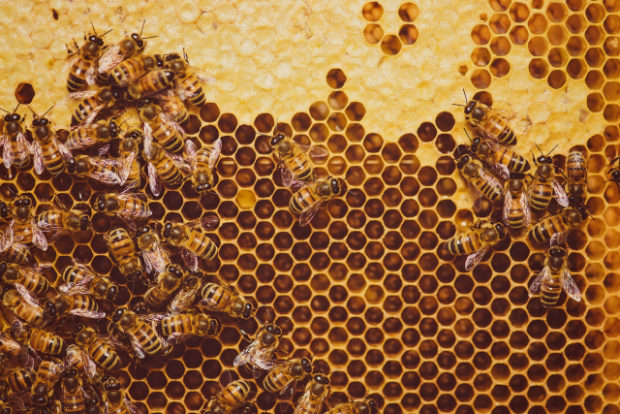Do animals also self-isolate?

Honeybees have strategies for dealing with infection in their colonies. Image: IStock.com/knape
It is a good time to remember that the concept and practice of quarantining also exists in the animal kingdom. This comes as quarantine measures are in the news again as various European countries enact policies for arrivals from other nations in the midst of summer holiday season and New Zealand’s policies make headlines as the country moves quickly to control a new outbreak.
Numerous animals live in solitary setups, aside from when it is their mating season, in order to avoid problems linked to life within a group. But others, who are more sociable in general, opt for radical distancing strategies when outbreaks of diseases occur. This was indicated in a research study published in The Royal Society by Hamilton College associate professor of biology Andrea Townsend, evolutionary psychologist Keelah Williams (Hamilton College) and disease ecologists Dana Hawley (Virginia Tech) and Jessica Stephenson (University of Pittsburgh).
Foraging honeybees (Apis mellifera)
Honey-producing bees are known for their highly organized lives in collectivity. Subject to an assortment of pathogens, an individual bee removes itself from the colony when it is infected, with a lower return rate to the hive having been observed in order to promote survival of the group.
Chimpanzees
Primatologists have observed the phenomenon of ostracization toward a sick individual in groups of chimpanzees, although some have been spotted being welcomed back to a group eventually.
Caribbean spiny lobsters
Thanks to chemosensory cues, these lobsters are capable of detecting an individual infected with a pathogen. Avoidance strategies appear to be put into place in order to avoid multiplying the disease.
Guppies
Meanwhile, guppies have been observed to be highly sensitive to sickness cues, with those with weak defenses avoiding individuals likely to be infected with parasites. CC
RELATED STORIES:
Docile or hostile?: ‘Domestication’ genes found in foxes
‘Fun and interactive’: American Zoo encourages people to pen letters for their animals